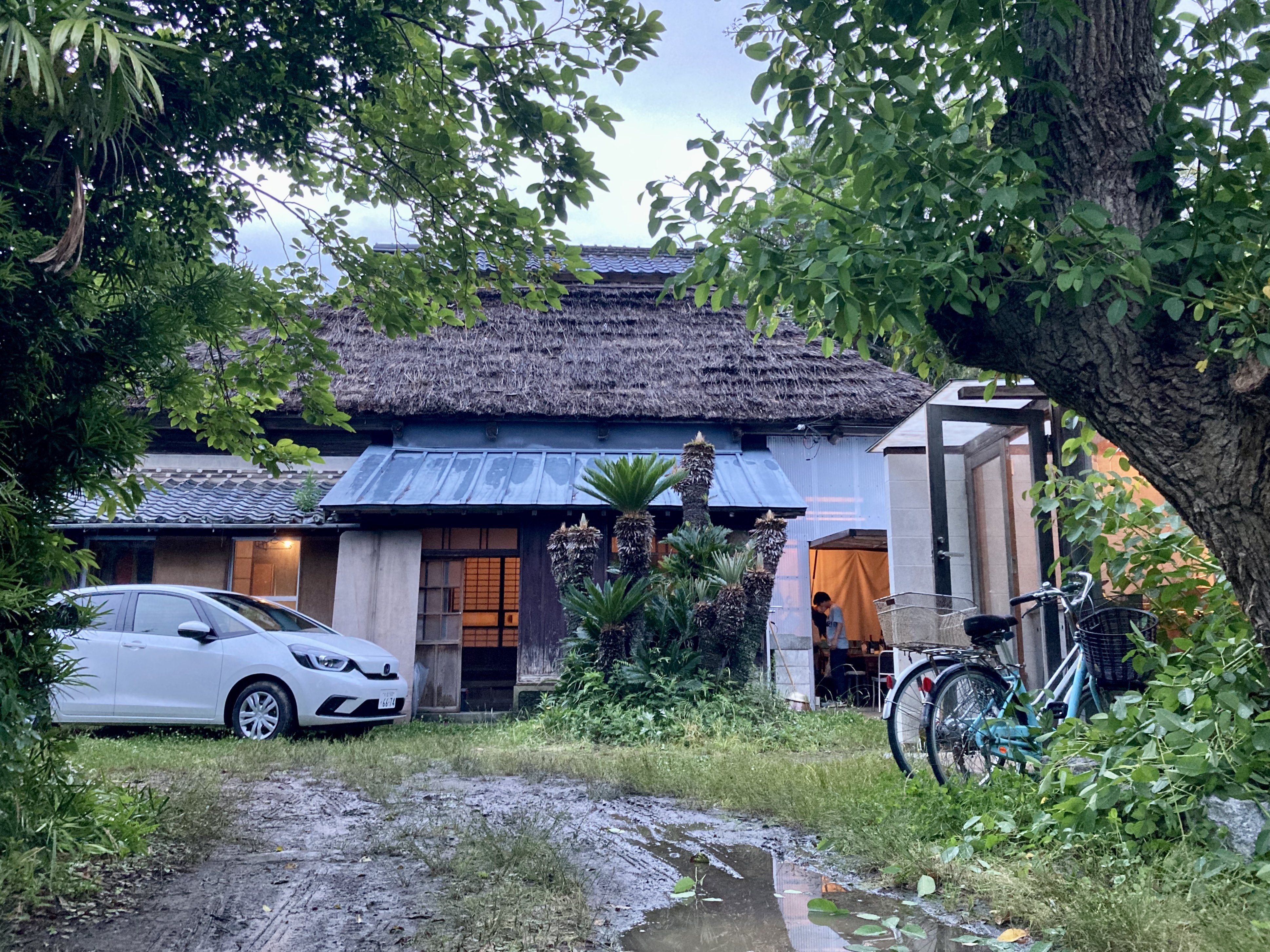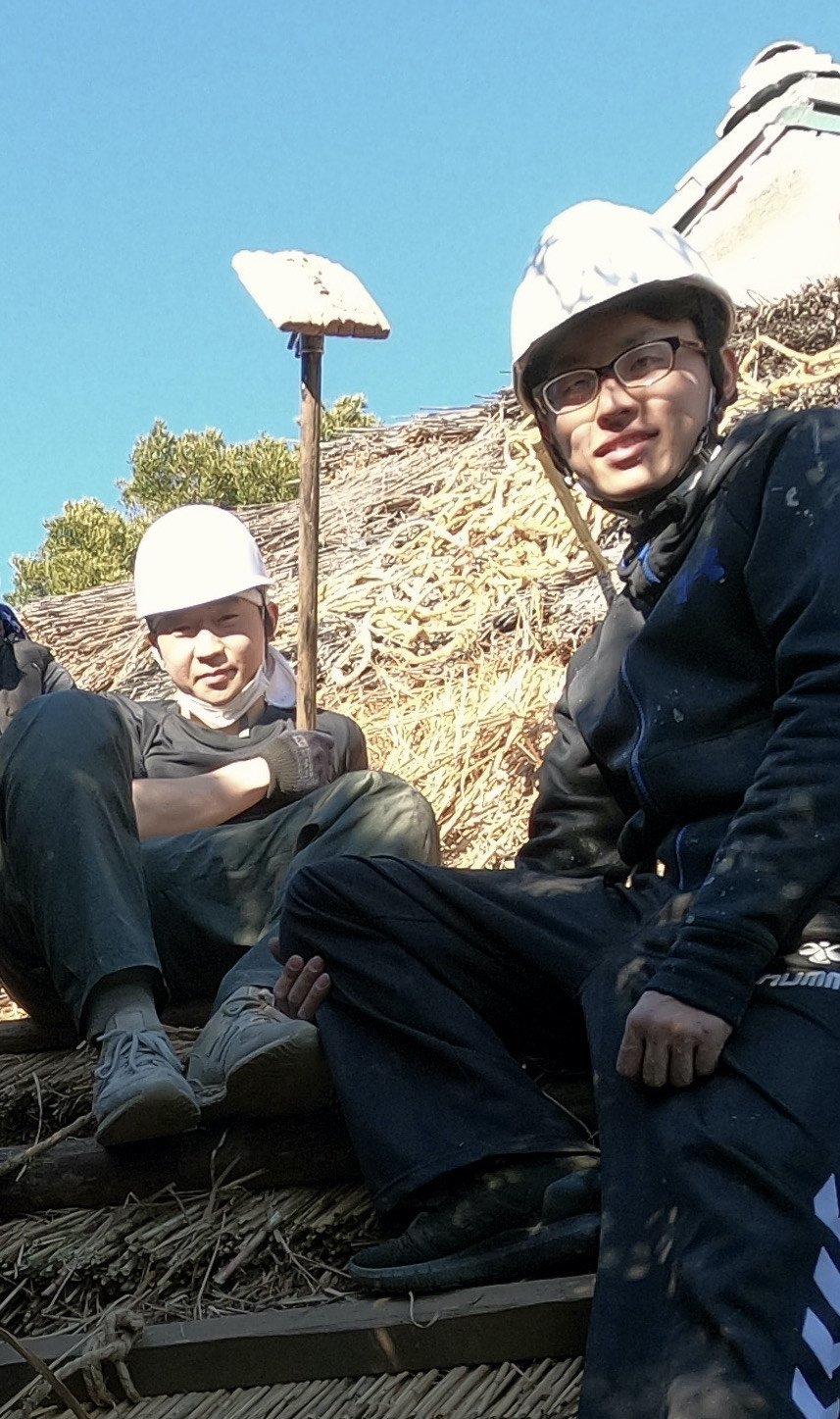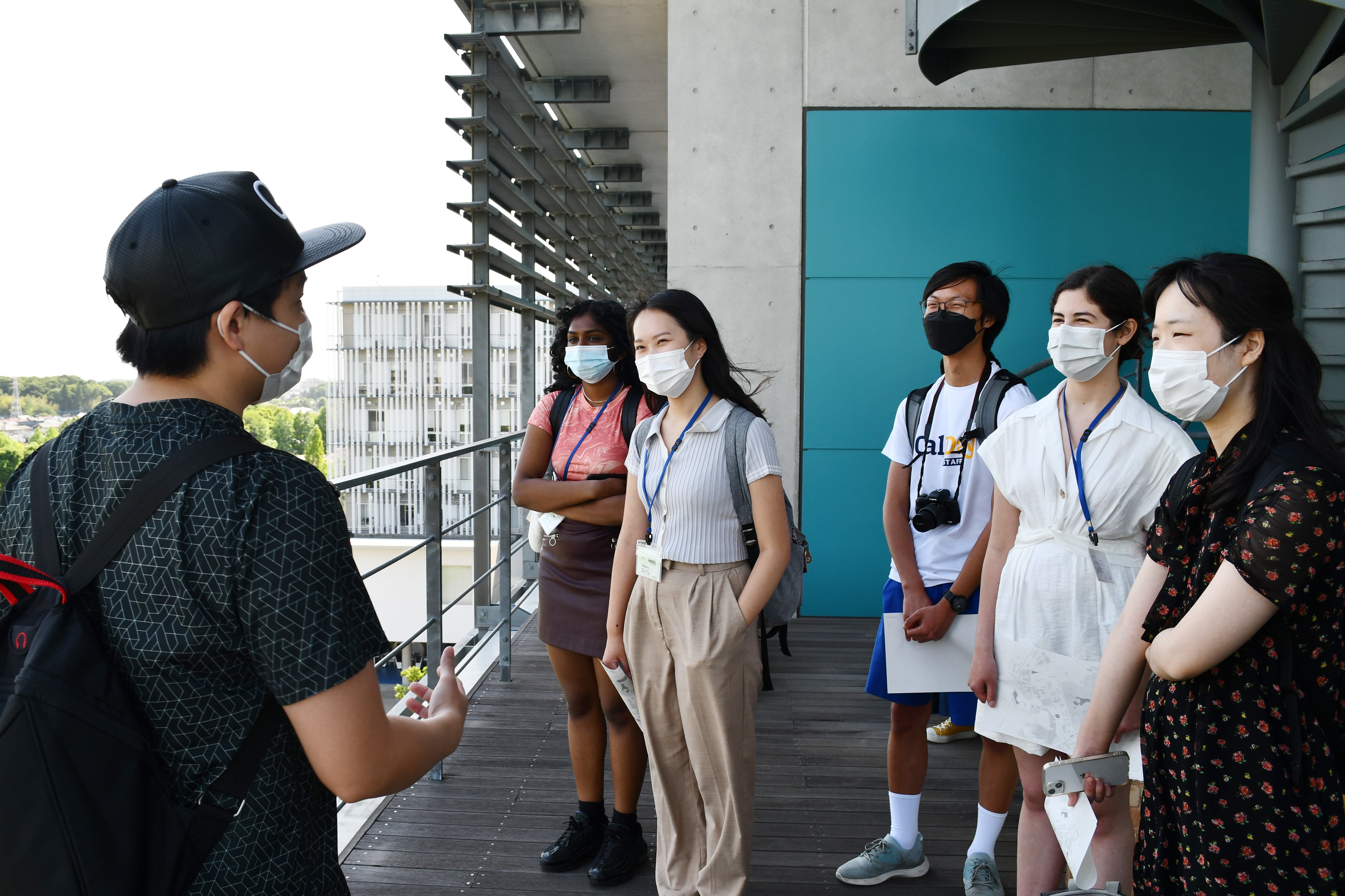Gonjiro School Project

The main house was ramshackle in 2009. The house has been refurbished by arduous work.
Revitalizing the Deteriorating Community
At the south tip of Boso Peninsula in Shiomi, Tateyama City, Professor Okabe and her laboratory members of the Department of Socio-Cultural Environmental Studies are undertaking the project called the “Gonjiro School Project” to study the local community establishment of this area. The base of the study is a country house with a thatched roof named “Gonjiro”. They have rethatched the roof of Gonjiro and reconstructed the earthen-floor and the kitchen. Supporting the community with events like summer festivals and rice cake parties or repairing dilapidated bus stops, the students voluntarily communicate with the local people and work to solve problems in the area. They are trying to develop mutual support systems and revitalize the traditional functions of the community through these activities based on new ideas that are customized to the district.

Students rethatched the roof under the instructions of roofers. In two weeks by four to five people’s work, only one sixth of the roof can be rethatched.

TOMIDOKORO Takahiro (left) TAWARA Kentaro (right), one-year master’s course students of the Department of Socio-Cultural Environmental Studies
“Inheriting the project is our mission”
“Gonjiro” has been inherited by predecessors of the community and the laboratory members with their attachment to the house and by efforts to preserve it. A thatched roof needs constant maintenance. It is important to keep watching and taking care of it. We are now focusing on garbage problems to make the Shiomi Area more attractive to visit”
The Summer Internship Program (UTSIP Kashiwa)

The 10th Summer Internship Program was held face-to-face for the first time in three years. Fourteen international students and one undergraduate student from the University of Tokyo attended the program and undertook research activities for approximately seven weeks from June to July. They directly received academic advice on their research topics. After experiencing the cutting-edge technologies and Japanese culture, the participants said: “It is exciting to meet people with various backgrounds,” “The program is very satisfying because you can communicate with people not only through research activities but recreation on weekends.”
Kashiwa Campus Science Camp (KSC)

Graduate School of Frontier Sciences held the 7th Kashiwa Campus Science Camp (KSC) in the 2021 academic year. Thirty laboratories, including those affiliated with research centers on Kashiwa Campus, offered special courses to 117 first- and second-year students at the College of Arts and Sciences, the University of Tokyo. The four-day program successfully delivered online lectures and face-to-face training. Students had a rare opportunity to interact with graduate students and participate in experiments and fieldwork that they had not experienced in regular lectures. The course instructors were impressed by students’ enthusiasm to tackle difficulties.
vol.40
- Cover
- Feature Article: The Forefront of VR - POSSIBILITY OF HAPTICS
- Material Science: The Driver of Electron Device Evolution
- Floating Platform for Sustainable System
- GSFS FRONTRUNNERS
- Voices from International Students
- ON CAMPUS x OFF CAMPUS
- EVENT & TOPICS
- Awards
- INFORMATION
- Relay Essay: School in Switzerland
